| Wednesday, December 17, 2003 |  |
|
|
|
 From Bruce Sterling: From Bruce Sterling:"Holy macaroni. Why is the official news agency of the People's Republic of China posting a whole bunch of nude body-painting? Have they lost all their little gray Mao suits over at Xinhua? What gives? A couple of these pics are Veruschka Lehndorff art-shots from the mid-1980s. Some official Chinese web-guy has been collecting these things. What could this be about?" Gee, I don't know. The site is here. Delightful stuff. Isn't that a christmas ornament there? Or chocolate and strawberries?
[ Inspiration | 2003-12-17 20:09 | | PermaLink ] More >
|
|
| Saturday, December 13, 2003 |  |
|
|
|

We are born into a vast room whose walls consist of a thousand doors of possibility. Each door is flung open to the world outside, and the room is filled with light and noise. We close some of the doors deliberately, sometimes with fear, sometimes with calm certainty. Others seem to close by themselves, some so quietly that we do not even notice.
- Terry Teachout
[ Inspiration | 2003-12-13 19:06 | | PermaLink ] More >
|
|
| Monday, December 8, 2003 |  |
|
|
|
 Andy Borrows' Older and Growing blog is always a good read. In particular, Andy has a compellingly authentic voice. Andy Borrows' Older and Growing blog is always a good read. In particular, Andy has a compellingly authentic voice."I’ve been feeling oddly ill-at-ease for the last week or so, and couldn’t figure out why. Disconnected, running on autopilot, remote from experience; definitely a few cards short of a full deck. I’ve been bouncing half-formed ideas around my head trying to figure out the cause of the malaise; I started writing blog posts several times but abandoned them every time - the words kept falling into one of a number of stereotyped patterns, running away with themselves, finding their own course like heavy rain falling on a dusty hillside.
But I think the penny has finally dropped. It’s this blogging business, or rather the effects it has.
I had grown used to living in a rut. It may not have been perfect, but after a while you don’t notice the imperfections; it’s just not quite uncomfortable enough to warrant changing anything. Hankering after things that are out of reach only makes you dissatisfied, so after a while you build a high wall so that you can’t see them any more and that way you don’t get so dissatisfied. You don’t notice the rut, because everyone living your side of the wall has their own rut. Life goes on, day follows day and we all get a little older, a little more sure that our reality only extends as far as that wall, but since we do those things together, no-one really notices. And so the wall gets a little higher, a little thicker.
But then along comes blogging and it starts knocking holes in that wall, through which you can glimpse exquisitely tantalising thumbnails of the view on the other side; it creates links, threads that pass through those holes and start to exert a tug that’s almost physical. People, places, ideas, challenges – suddenly they’re all around in glorious technicolour and by contrast this side of the wall is grey, shabby, lifeless, dull.
So what’s been knocking those holes?" See, how many of us wait to write and speak until we have something figured out, until we have something smart to impart to the world. But the best stuff in life is often the reality of where we are right now, halfway through a lot of things we haven't figured out, and which we might or might not. And when we embrace that, and are able to be in it and talk about it, revelations tend to show up. Like, read on in Andy's post.
[ Inspiration | 2003-12-08 15:59 | | PermaLink ] More >
|
|
|
|
 In 1927 as Buckminster Fuller was standing at the edge of Lake Michigan, intent on committing suicide by throwing himself into the dark, cold water, he instead hesitated and started thinking about what meaning his life could have. For the first time doing some thinking he felt was his own. And he asked himself what one penniless little human could possibly do for humanity that the most powerful governments and corporations couldn't do better. In 1927 as Buckminster Fuller was standing at the edge of Lake Michigan, intent on committing suicide by throwing himself into the dark, cold water, he instead hesitated and started thinking about what meaning his life could have. For the first time doing some thinking he felt was his own. And he asked himself what one penniless little human could possibly do for humanity that the most powerful governments and corporations couldn't do better."Answering myself, I said: "The individual can take initiatives without anyone's permission."
I told myself: "You do not have the right to eliminate yourself, you do not belong to you. You belong to the universe. The significance of you will forever remain obscure to you, but you may assume that you are fulfilling your significance if you apply yourself to converting all your experience to the highest advantage of others." So I vowed to keep myself alive, but only if I would never use me again for just me - each one of us is born of two, and we really belong to each other. I vowed to do my own thinking instead of trying to accommodate everyone else's opinions, credos and theories. I vowed to apply my inventory of experiences to the solving of problems that affect everyone aboard planet earth.
I didn't want to waste a second, so I slept that way that certain animals sleep: lying down as soon as I was tired, sleeping a half hour every six hours. I also decided to hold a moratorium on speech. It was very tough on my wife, but for two years in that Chicago tenement I didn't allow myself to use words. I wanted to force myself back to the point where I could understand what I was thinking.
I decided to forget about earning a living. It seemed to me that humans are honey-money bees, doing the right things for the wrong reasons, just as the bee pollinates the flower.
Released from the idea of earning a living, I was able to address problems in the biggest way. I decided to commit myself to the invention and development of physical artifacts to reform the environment. I decided that a plurality of such artifacts had the potential to evoke humanity's most intelligent, interconsiderate qualities. It became obvious that if I worked always and only for all humanity, I would be optimally effective. I'd be doing what nature wanted me to do, and nature would literally support me." Now, get that. One individual working for all of humanity. Applying all of your energy and intelligence to making the biggest possible positive difference for the whole world. But doing it completely on your own premises. Not sacrificing yourself to the will of some homogonous group. Not just trying to tweak the best advantage for yourself out of life. No, doing the very best you can, in the way that only you can know how to do - not for yourself, not for any particular group, but for all of us together. There's nothing quite as powerful as that. It is a profound statement, a profound intention. And not just some idealistic do-good kind of thing to say. It is maybe the most sensible thing to do.
Many years later, two years before he died, Bucky wrote a book called "Critical Path" in which he summarized much of what he had learned. This is part of what he wrote in the foreword:"My reasons for writing this book are fourfold:
(A) Because I am convinced that human knowledge by others of what this book has to say is essential to human survival.
(B) Because of my driving conviction that all of humanity is in peril of extinction if each one of us does not dare, now and henceforth always to tell only the truth, and all the truth, and to do so promptly—right now.
(C) Because I am convinced that humanity’s fitness for continuance in the cosmic scheme no longer depends on the validity of political, religious, economic, or social organizations, which altogether heretofore have been assumed to represent the many.
(D) Because, contrary to (C), I am convinced that human continuance now depends entirely upon:
(1) The intuitive wisdom of each and every individual.
(2) The individual’s comprehensive informedness.
(3) The individual’s integrity of speaking and acting only on the individual’s own within-self-intuited and reasoned initiative.
(4) The individual’s joining action with others, as motivated only by the individually conceived consequences of so doing.
(5) And, the individual’s never-joining action with others, as motivated only by crowd-engendered emotionalism, or by a sense of the crowd’s power to overwhelm, or in fear of holding to the course indicated by one’s own intellectual convictions." Notice that it is at first not always easy to read what he wrote. After his two years of self-imposed silence he then only wrote and spoke in very precise statements that pack quite some wisdom into each sentence, but which uses many made-up words. However, if you get used to it, you'll appreciate how clearly the man was saying things.
OK, so again he's talking about how we might make the world work optimally for all of us. First of all how we might possibly save humankind from imminent extinction. Not by some political or religious ideology. Not through any organization that claims to be working on such big matters. No, through well-informed individuals, who come to realize what they're here to do, and who go and do it, in accordance with their own integrity and intuition. And such individuals then freely joining their actions with the actions of others.
I went and picked those quotes out because I was thinking about the principles of the open source movement, and about how I better can do something useful in the world. Notice that most people who're developing open source software are following the principles outlined above, even if the individuals doing so might not at all resonate with the lofty aims described. But it ads up to the same thing. If you develop some little software utility just to scratch your own personal itch, but you actually put it out into the world for others to freely use, and it turns out that it is useful for others too - you're doing exactly that. You, as an individual, are guiding your actions by your own intuition and decisions, not taking direction from any authoritative group outside yourself, doing it entirely you own way, and you give your work to the world with few or no strings attached.
If the world just worked a few percent more like that, the tides would turn. If more works were put into the world by people who did exactly what they think is needed, without caring whether it pays or whether power groups might agree or not. If more big and small problems were solved for all of us by smart people doing whatever they damned well felt like. Little by little, the pool of tools and resources supporting humanity is growing. And, one by one, organizations that hold on to power for its own sake, for their own sake, or for the sake of some dried-up idealistic principles - will fall apart and fade away. Just because they don't work as well as a network of free people who serve the world. They never have, but it is not beginning to be clear before now.
Anyway, I will be searching for a better understanding of what it means to be working in that way. Indeed, it doesn't have to be something big and noble and idealistic at all. It can be simply doing little useful things that need to be done, and making them as available as possible,
[ Inspiration | 2003-12-08 14:43 | | PermaLink ] More >
|
|
| Tuesday, November 25, 2003 |  |
|
|
|
 Mentioned by Bushman and others. Go watch The Meatrix. A fabulous little flash movie where Moopheus will show you the real world. First of all it is a very funny and perfectly done takeoff of The Matrix. Secondly, it introduces the issue of the destructiveness of factory farming in meat production, and presents activist resources and alternatives. Thirdly, the movie is a "Free Range Flash Activism Grant". I.e. a design company called Free Range Graphics invited non-profit organizations to apply for the production of a free Flash movie. Not only is that very nice of them, and a powerful tool for activism, but it is of course also an excellent promotion for their company. Something to learn from there. Win-win and support the common good. Mentioned by Bushman and others. Go watch The Meatrix. A fabulous little flash movie where Moopheus will show you the real world. First of all it is a very funny and perfectly done takeoff of The Matrix. Secondly, it introduces the issue of the destructiveness of factory farming in meat production, and presents activist resources and alternatives. Thirdly, the movie is a "Free Range Flash Activism Grant". I.e. a design company called Free Range Graphics invited non-profit organizations to apply for the production of a free Flash movie. Not only is that very nice of them, and a powerful tool for activism, but it is of course also an excellent promotion for their company. Something to learn from there. Win-win and support the common good.
[ Inspiration | 2003-11-25 05:46 | | PermaLink ] More >
|
|
|
|
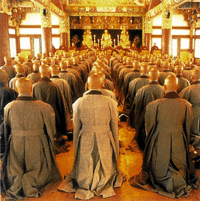 Scotty posts the delightful story of Wu-Ming, a simple Buddhist monk who seemed to demonstrate great wisdom without particularly trying. In the words of Tung-Wang, 898 A.D.: Scotty posts the delightful story of Wu-Ming, a simple Buddhist monk who seemed to demonstrate great wisdom without particularly trying. In the words of Tung-Wang, 898 A.D.:"Though in the course of my lifetime I have encountered many of the most venerable progenitors of the Tathagata's teaching, never have I met one so skilled at awakening others to their intrinsic Buddhahood as this wonderful fool Wu-ming. His spiritual non-sequiturs were as sparks, lighting the flame of illuminating wisdom in the minds of many who engaged him in dialogue.
Once a monk approached Wu-ming and asked in all earnestness, "In the whole universe, what is it that is most wonderful?" Without hesitation Wu-ming stuck a cucumber before the monks face and exclaimed, "There is nothing more wonderful than this!" At that the monk crashed through the dualism of subject and object, "The whole universe is pickled cucumber; a pickled cucumber is the whole universe!" Wu-ming simply chuckled and said, "Stop talking nonsense. A cucumber is a cucumber; the whole universe is the whole universe. What could be more obvious?" The monk, penetrating the perfect phenomenal manifestation of Absolute Truth, clapped his hands and laughed, saying, "Throughout infinite space, everything is deliciously sour!"
On another occasion a monk asked Wu-ming, "The Third Patriarch said, "The Great Way is without difficulty, just cease having preferences." How can you then delight in eating cucumbers, yet refuse to even take one bit of a carrot?" Wu-ming said, "I love cucumbers; I hate carrots!" The monk lurched back as though struck by a thunderbolt. Then laughing and sobbing and dancing about he exclaimed, "Liking cucumbers and hating carrots is without difficulty, just cease preferring the Great Way!"" Ah, life is so simple, if we just stay true to our nature, do what comes natural, and avoid getting lost in abstract complexities.
[ Inspiration | 2003-11-25 05:46 | | PermaLink ] More >
|
|
| Monday, November 24, 2003 |  |
|
|
|
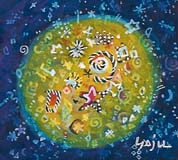 Excellent op-ed piece "Tech Bloom in full flower" by Alex Steffen. Excellent op-ed piece "Tech Bloom in full flower" by Alex Steffen."The conventional wisdom, during the Tech Boom, was that what drove innovation was the lure of giant piles of cash. That idea now rubs shoulders with the Berlin Wall. What makes creative people tingle are interesting problems, the chance to impress their friends and caffeine. Freed from the pursuit of paper millions, geeks are doing what geeks, by nature, really want to be doing: making cool stuff.
Not just making it, but giving it away. Saying the Tech Bloom is not commercially driven is like saying Mother Teresa had an interest in the poor.
Which may be why the media haven't quite gotten the magnitude of what's happening here: It's not about investments. If the Tech Boom had a graven image, it was the bull on Wall Street. The Tech Bloom is more likely to be found dancing around the desert at Burning Man, the annual festival where money is taboo, everything's a gift and creative participation is synonymous with cool." Indeed, it is great news. Very cool things are being developed by people who do it because it needs to be done, because it is fun, because other people like it. Money has very little to do with it. It is unstoppable. Imagine when the whole world works like that.
[ Inspiration | 2003-11-24 05:20 | | PermaLink ] More >
|
|
| Saturday, November 22, 2003 |  |
|
|
|
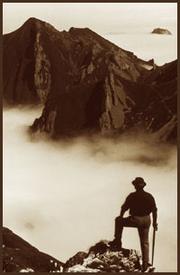 Anthony Robbins says: Anthony Robbins says:The truth of the matter is that there's nothing you can't accomplish if:
(1) You clearly decide what it is that you're absolutely committed to achieving,
(2) You're willing to take massive action,
(3) You notice what's working or not, and
(4) You continue to change your approach until you achieve what you want, using whatever life gives you along the way." And I agree with him. If you become aware of what you're called to do, and you truly want to do it, and you commit all your energy to it, and you do the things that work, and not the things that don't work, and you don't give up - nothing can stop you. And, of course, if you waver on what you want, and you don't really go for it, and you insist on doing things the same old way - then you might or might not get anywhere that you like.
[ Inspiration | 2003-11-22 02:28 | | PermaLink ] More >
|
|
| Monday, November 10, 2003 |  |
|
|
|
 My friend Lionel suggested I'd probably like Giordano Bruno, who's a now relatively little known Italian renaissance philosopher from the 16th century. At least I had never heard of him, but he's been very famous or infamous in various periods. My friend Lionel suggested I'd probably like Giordano Bruno, who's a now relatively little known Italian renaissance philosopher from the 16th century. At least I had never heard of him, but he's been very famous or infamous in various periods.
And, indeed, I like him. Here's a good overview of what he was about: The Forgotten Philosopher, which I'll include at the bottom too. He was apparently quite a bit ahead of his time, a pioneer semanticist and epistemologist.
He wrote, for example, about the "shadows of ideas", about how ideas and words are always imprecise approximations of something more real. Like Korzybski centuries later, he took up battle against Aristotelian thinking that makes everything much too black and white."This entire globe, this star, not being subject to death, and dissolution and annihilation being impossible anywhere in Nature, from time to time renews itself by changing and altering all its parts. There is no absolute up or down, as Aristotle taught; no absolute position in space; but the position of a body is relative to that of other bodies. Everywhere there is incessant relative change in position throughout the universe, and the observer is always at the center of things." He dreamt about an infinite universe with an infinite number of inhabited worlds, united in a single interpenetrating unity. A place where God and Nature couldn't possibly be considered separate entities."The universe comprises all being in a totality; for nothing that exists is outside or beyond infinite being, as the latter has no outside or beyond." And he defended loudly the right to think about such things, to dream, to question reality, search for one's own answers, and to philosophize about what it all means. Which is summarized in the slogan he coined:"Libertes philosophica" Here is a list of his writings.
Giordano was a major non-conformist thinker of his time. Which of course didn't sit well with the Catholic church. So, somebody inevitably turned him in to the Inquisition, which failed to make him recant in the slightest, and as a dangerous heretic he was eventually burned at the stake in 1600, as a martyr for free thinking and universal unity.
[ Inspiration | 2003-11-10 15:59 | | PermaLink ] More >
|
|
| Sunday, November 9, 2003 |  |
|
|
|
 Jason Salavon has done a little research project consisting of digital aggregation of playboy centerfolds. Specifically he averaged all the pictures for each decade. And you can see some kind of evolution over time ... I suppose. Like that the girls were pink in the 60s and orange in the 70s. Really you can't see much. I hope that he didn't get a research grant for this. Anyway, here to the right is my favorite, Miss 1980s. She looks sort of vaguely familiar somehow. Jason Salavon has done a little research project consisting of digital aggregation of playboy centerfolds. Specifically he averaged all the pictures for each decade. And you can see some kind of evolution over time ... I suppose. Like that the girls were pink in the 60s and orange in the 70s. Really you can't see much. I hope that he didn't get a research grant for this. Anyway, here to the right is my favorite, Miss 1980s. She looks sort of vaguely familiar somehow.
[ Inspiration | 2003-11-09 15:25 | | PermaLink ] More >
|
|
| Thursday, November 6, 2003 |  |
|
|
|
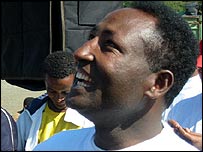 An Ethiopian fellow named Belachew Girma broke his own record in laughing non-stop. And got a crowd of unlookers to do the same. There's not always a lot to laugh about in Ethiopia, but sometimes the best therapy is to do so anyway. Story at BBC. An Ethiopian fellow named Belachew Girma broke his own record in laughing non-stop. And got a crowd of unlookers to do the same. There's not always a lot to laugh about in Ethiopia, but sometimes the best therapy is to do so anyway. Story at BBC. "We are living full of stress... Natural disasters, economical, political, social problems... My aim is to minimise this stress. Please let us communicate by smiling," he said. "Our slogan is 'laughter, love, peace for all human beings'." Indeed. The laughing exercise appears in a number of different traditions. I believe it is an old Buddhist exercise for one thing. I've participating in group laughing several times, and I can testify that it is very healing. In brief, you just start laughing, for no necessarily good reason. Sometimes that's difficult to do non-stop, but it helps to do it with a group of people. And it is kind of strange to break through the barriers that stop you from doing it. Crying works too, but I prefer the laughing process. Some people can hardly stop again. And just look at the smiling face of Belachew there. Hard not to laugh with him.
[ Inspiration | 2003-11-06 05:15 | | PermaLink ] More >
|
|
| Friday, October 31, 2003 |  |
|
|
|
Curt Rosengren mentions a fine little article in Discover Magazine about how our brains are wired for getting us what we expect we'll get, even when it doesn't make sense."Touch a pencil with all five fingertips of one hand, close your eyes, and ponder: If each fingertip forms a distinct tactile "image" of the pencil, why do you perceive a single pencil instead of five unconnected pencil fragments? The answer is that your brain has special circuits that help you build complete pictures from fragmented sensory information. In effect, these gap-filling circuits induce your brain to perceive what it expects to see, instead of what it actually sees. When these expectations accurately reflect the objective world around you, your perceptions will be on target. Sometimes, however, what your brain expects to see is far from an accurate representation of reality." It then has some practical exercises for demonstrating this, which you've probably done as a kid and forgotten. Like, demonstrating to you that you actually have two noses.The way that expectations shape perceptions has important implications for education. The developing brain processes complex perceptions, such as how difficult an academic subject is, in much the same way it handles simpler sensory information. If a student is led to expect that mathematics is difficult, even simple numerical problems may be perceived as unsolvable. Plain as the nose on your face, what you believe determines what you achieve. I seem to remember experiments done with prisoners on death row that convinced them that they were dying, when they really weren't. They were promised money for their favorite charity or something. And then, you know, they were blindfolded and their arm anesthesized so they couldn't feel it, and then told that their veins were cut, so the blood would run out, and the point was to see how long they would stay conscious. And sound effects were produced that made it sound like blood was rushing out, even though it wasn't. And the guy died, because he was sure he would. I think they stopped the experiment after the second prisoner died the same way. Anybody has a reference on that? Sorry about the bloody story.
Anyway, the constructive point is of course that we can just as well get ourselves and others into expecting wonderful, magical and positive things to happen. And, again, the point is to do it sufficiently thoroughly that we actually succeed.
[ Inspiration | 2003-10-31 14:51 | | PermaLink ] More >
|
|
| Monday, October 27, 2003 |  |
|
|
|
 Roland quotes Dave Pollard who's writing about how to trick your left brain (anylytical, iconic) into getting out of the way so that you actually can see what you see in front of you, and allow your creativity to flow. Good stuff there, including this from Dave Pollard: Roland quotes Dave Pollard who's writing about how to trick your left brain (anylytical, iconic) into getting out of the way so that you actually can see what you see in front of you, and allow your creativity to flow. Good stuff there, including this from Dave Pollard:"Here are some exercises that I've found can help left-brainers to 'really see':- Move in close, so you divert attention from individual objects and start to see instead colour, texture, shape, shadow, reflection, pattern
- Find an unusual perspective from which to look -- get down on the ground and look up, look at something through trees, through a microscope, or by candlelight, anything that will let you see things differently from usual
- Look at things under unusual conditions -- in the fog, at night, right after a heavy rain, just at dawn or dusk
- Stimulate your other right-brain senses -- get your nose up close to things, listen to birds, or insects, or train whistles, or music, walk in your bare feet
- Walk or bicycle without a pre-determined destination, direction or time limit
- Study something -- birds at your bird-feeder, time-lapse of a flower over the course of a day or a week, a spider-web, how moving or dimming the lights in a room changes its character, how a bottle looks different when viewed from different angles
In the book Easy Travel to Other Planets, Ted Mooney describes a future world where people are so bombarded with meaningless information, abstract facts that don't really matter, that they become psychologically paralyzed, unable to focus on anything, and succumb to what Mooney calls 'information sickness'. In some ways we are already there. The trappings of our society and culture have already separated us from, and deadened us to, most of what is real in this world, and surrounded us instead with artifice -- bland, manipulative, numbing 'entertainment', office and home lighting (and air conditioning, and jobs) that are artificial, news that shows wars as light-shows instead of people dead and dying, cars that insulate us from any exposure to real people or real weather." Great stuff. Yes, a lot of us are hiding from most of what is real, just condensing it into symbols, then thinking the symbols are real, and drowning ourselves in too many symbols that we think we must do something about. Where we often might be better off by just slowing down and perceiving what actually is here.
[ Inspiration | 2003-10-27 10:30 | 0 comments | PermaLink ]
|
|
| Monday, September 1, 2003 |  |
|
|
|
 A fairy tale from Max about traveling emperors. A fairy tale from Max about traveling emperors.Then, a while later, in the far, far, away country, the silent voice talked to him again: "my son, so far, so good. But there is a secret you apparently are not quite aware of. If you want to feel true power and nothing but true power, you must start with nothing, absolutely nothing! This is the deepest of the secrets of all Emperors. So, if you don't mind, I'll arrange that you lose your remaining funds and income from the old new world while being back in the new old world. Just leave it up to me!" Alas, knowing the secret of emperors doesn't always make it easier. Sometimes a little magic would be nice.
[ Inspiration | 2003-09-01 17:03 | | PermaLink ] More >
|
|
| Monday, August 25, 2003 |  |
|
|
|
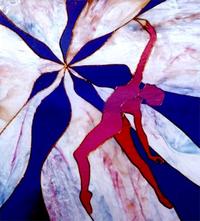
Work like you don't need money,
love like you've never been hurt,
and dance like no one's watching |
I saw that in somebody's profile, and I'm sure I've seen it somewhere else before. And, hey, I'd like to think I live by that motto too.
I just haven't quite figured out the "Work like you don't need money part". To me it means to work on what you're inspired to do, to work on things that need doing. "Do what you love and money will follow" kind of thing. Except for that it isn't that simple.
I'm ready to believe the universe works that way. That you're inherently supported in doing what you're inspired to do. That when you feed energy to something, it becomes more real and viable.
But our economic system doesn't work that way. It isn't inherently based on supporting good things. It is to some degree based on scarcity and abundance. Because of the way money is created it is very much based, not on what is of value, but on what turns money into more money. So the point to making money is not so much producing something needed and valuable, but rather to manage to become part of a value chain that at some level produces more money than what is put into it. I.e. it matters not at all whether you're doing something totally useless if the big company you're working for is making money. It doesn't matter if your activities are good for anybody, as long as you have a contract or a relationship that compels somebody to give you money.
Doesn't mean it isn't possible. Some people manage to concentrate on what they actually want to do, and also be paid well for it, without having to worry about it. You can be an artist, a writer, a speaker, a consultant, a researcher, just doing what you like doing, in the way you want to do it. And others might notice that it is good and useful or desirable, and they will pay you for it.
And, yes, if you're good enough at what you're doing, and/or good enough at presenting yourself, that can very well translate into natural success in the money world too. But there's some kind of secret ingredient there. People who do so are usually either very confident about the ease with which they'll live, and good at compelling the universe to follow their lead. Or, their income is really from something entirely different than what they do now. It is a lot easier to be an inspired artist or philantropist or playboy if you have a trust fund, or the investments from selling your company 20 years ago, or the proceeds from that lawsuit you won, or whatever it is.
I'm looking for the real deal. The ability to dance to your own inner tune, to throw yourself into life, to live and love more fully, to do work that is there to do, that inspires and moves you. And for that to actually be a viable life style.
So, if it works like that for you, please tell me. And give us some hints.
There is another angle of interpreting it, of course, which I have indeed followed most of my life. It is that you might indeed pick a job for the money, but you'd work it like you didn't care about the money part. I have indeed found that I was most fulfilled and most useful if I did a given job the way I felt it needed to be done, no matter whether anybody agreed or whether I'd be likely be fired for doing it that way. In other words, do your work without fear. Do what is true for you within the circumstances where you find yourself.
[ Inspiration | 2003-08-25 04:01 | | PermaLink ] More >
|
|
| Tuesday, August 19, 2003 |  |
|
|
|
 Julie posted an article by Jon Rappoport, and since I think it is absolutely great, and it matches something I've just been thinking about and focusing on, I'll include it below here too. Julie posted an article by Jon Rappoport, and since I think it is absolutely great, and it matches something I've just been thinking about and focusing on, I'll include it below here too.
It is sort of a big secret. The power and the role of our imagination. Large portions of the human population have somehow gotten to believe that imagination is just some confusing random noise in our heads. Day dreaming, a source of material to write or talk about, maybe positive thinking at best.
Where really it is what our whole reality is built on. Not just that it is a good idea to visualize one's plans. Much deeper than that. Not even just a fuzzy new age idea that we're creating our own reality. Yes, but more tangible than that.
It is hard to even talk about to people who don't get it, or who don't agree. Which ironically proves the point.
If you believe (imagine) something isn't possible, it isn't. If you believe it is possible, it is. No, not just that you have the thought, or do a few affirmations, or pray a little bit, although that will all help. But you'll have to fool yourself completely. That is the hard part.
Jon gives a delightful rundown of crazy things some people have believed which enabled them to do paranormal things. What is great is that there's no common denominator between them, other than that somebody believed each of them well enough for them to work.
I have been a counselor for many years, working with people on their issues and aspirations. My tools are essentially ways of helping people feel it being comfortable and appropriate to change their mind and their life. I've seen many life changes, and sometimes miracles. The only thing that ever changed any of my clients was when they stopped imagining what they were previously imagining, which they weren't happy with, and when they started imagining something else. Normally nobody will admit that it is that simple. Therefore, my techniques are much more complicated, and involves ways of processing one's thoughts and feelings and memories, and ways of gradually getting to a point where one feels that, now is the appropriate time to change.
The irony for me is that it makes it a good deal harder for me to practice my craft on myself. Because I know the secret.
Now I have the thought that it is time to take it to another level.
People live the lives they imagine themselves living. If they imagine themselves being stuck, they are. If they succeed in imagining new possibilities sufficiently well, and they manage to believe they're available, they are. If groups of people start imaginging something different, and they do it well enough, their collective reality changes.
The world could be different next week. It doesn't really depend on anything we don't already have. It doesn't really depend on money or politics or laws or astrology or science, except for to the degree that we believe it does.
We're looking through the wrong end of the telescope.
I imagine it is about to change.
[ Inspiration | 2003-08-19 17:59 | | PermaLink ] More >
|
|
| Sunday, June 29, 2003 |  |
|
|
|
 Leif Smith has this on his site, by Ion Basati, written after an encounter with government troops: Leif Smith has this on his site, by Ion Basati, written after an encounter with government troops:Our friends are dead.
In despair, we seek power,
Thinking to be free by ruling.
But power is guns and jails,
Threats of death and cages.
Power kills spirits,
Turns flowers to iron.
Power scorns boundaries,
Invades life,
Conceives ends and offers death
To those who will not be means.
Power is stupidity imposed by force,
Stone without mind.
Conflict is the health of the State.
Power set against power
Forges chains of slavery,
Enshrines authority.
Swords against stone,
The sparks to burn a world.
Shall we honor the dead
By howls of grief?
No! By songs of triumph.
Free men, you are invincible.
Laugh at power,
Spring will conquer stone.
A seed shall be thought in each mind,
To grow in memory of heroes
And certainty of victory;
The greatest idea - Freedom:
An agreement among men
To live within boundaries.
Four boundaries:
A body;
Nature found and used;
Fruits of thought and labor;
Things of matter and spirit,
Freely exchanged.
The seed grows into a vision.
The structure of power is displaced;
Spontaneous order emerges.
Men living in renaissance
Cover the winter of power
With the spring of freedom.
Swords are dulled on stone,
But grass shall break it.
[ Inspiration | 2003-06-29 13:45 | | PermaLink ] More >
|
|
| Saturday, June 28, 2003 |  |
|
|
|
 Mark Frauenfelder has arrived with his family from Los Angeles to live on a tiny isolated island in the south Pacific: Mark Frauenfelder has arrived with his family from Los Angeles to live on a tiny isolated island in the south Pacific:We're starting to get settled in to Rarotonga. I had to pay NZ$525 (US$300) to get an Internet account and it is really really slow. It's mind-boggling to be here, on this emerald speck full of life: the sounds of roosters and motor scooters, the smell of burning palm fronds, the sight of the stars at night, the beautiful green mountains, and the ocean and sand. Carla and I still aren't sure what we've gotten ourselves into, but the weirdness factor makes it all worth it. We have a deal with a publication to post weekly online dispatches, and I'll announce it as soon as the deal is finalized. In the meantime, you can see some pictures, inlcuding one of our new home. An ongoing account is at Island Chronicles.
[ Inspiration | 2003-06-28 23:59 | 0 comments | PermaLink ]
|
|
|
|
Doc mentions the Affirmation Bullshit Generator, which is good fun. A bit of a joke, alright, but, hey it works for me, sensitive new age guy. Envisioning my cognitive humanity works for me any day.
[ Inspiration | 2003-06-28 23:59 | | PermaLink ] More >
|
|
| Wednesday, June 25, 2003 |  |
|
|
|
 Each morning is the open door to a new world - new vistas, new aims, new plans, new thoughts...and whether one is twenty, forty, sixty, or eighty; whether one has succeeded, failed or just muddled along - life begins each morning! - L. M. Hodges
[ Inspiration | 2003-06-25 02:15 | | PermaLink ] More >
|
|
<< Newer stories Page: 1 2 3 4 5 6 7 8 9 Older stories >> |

